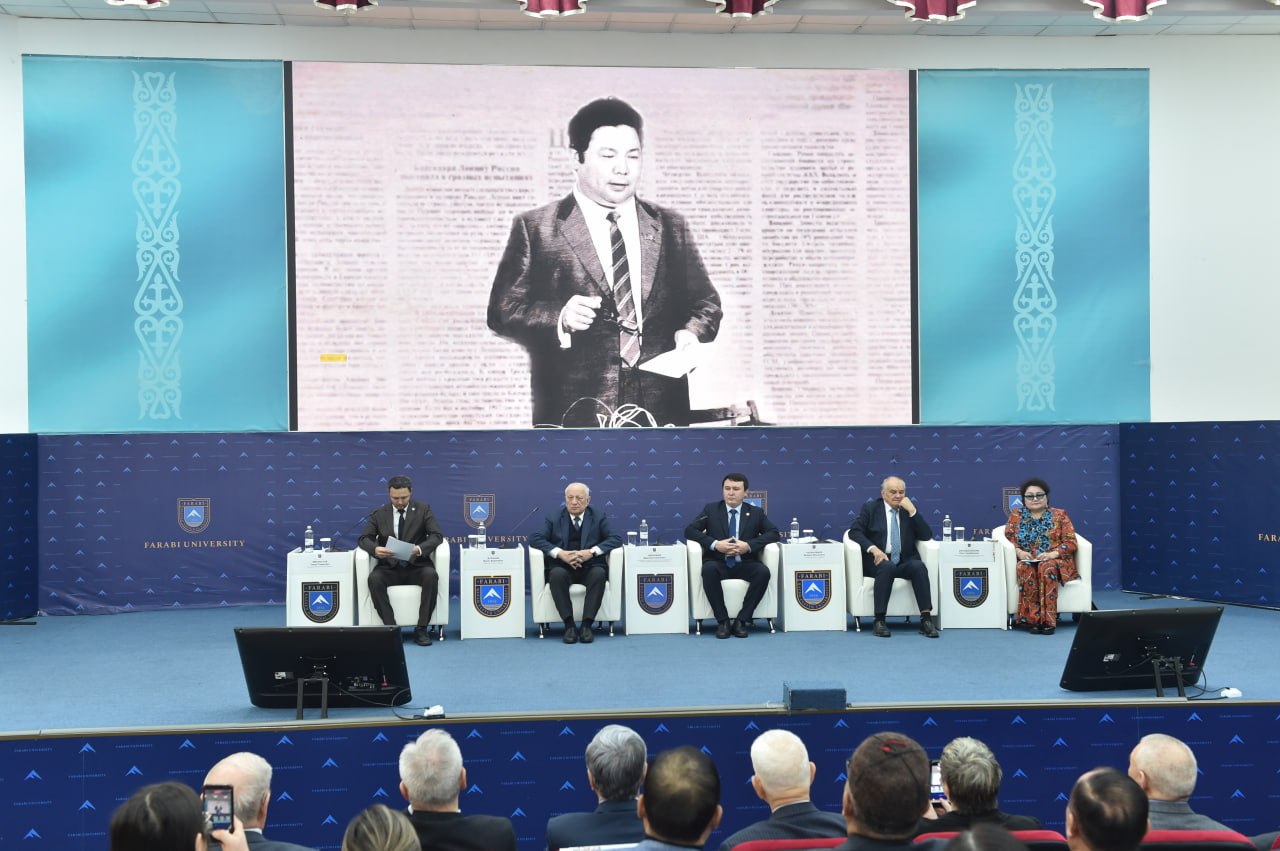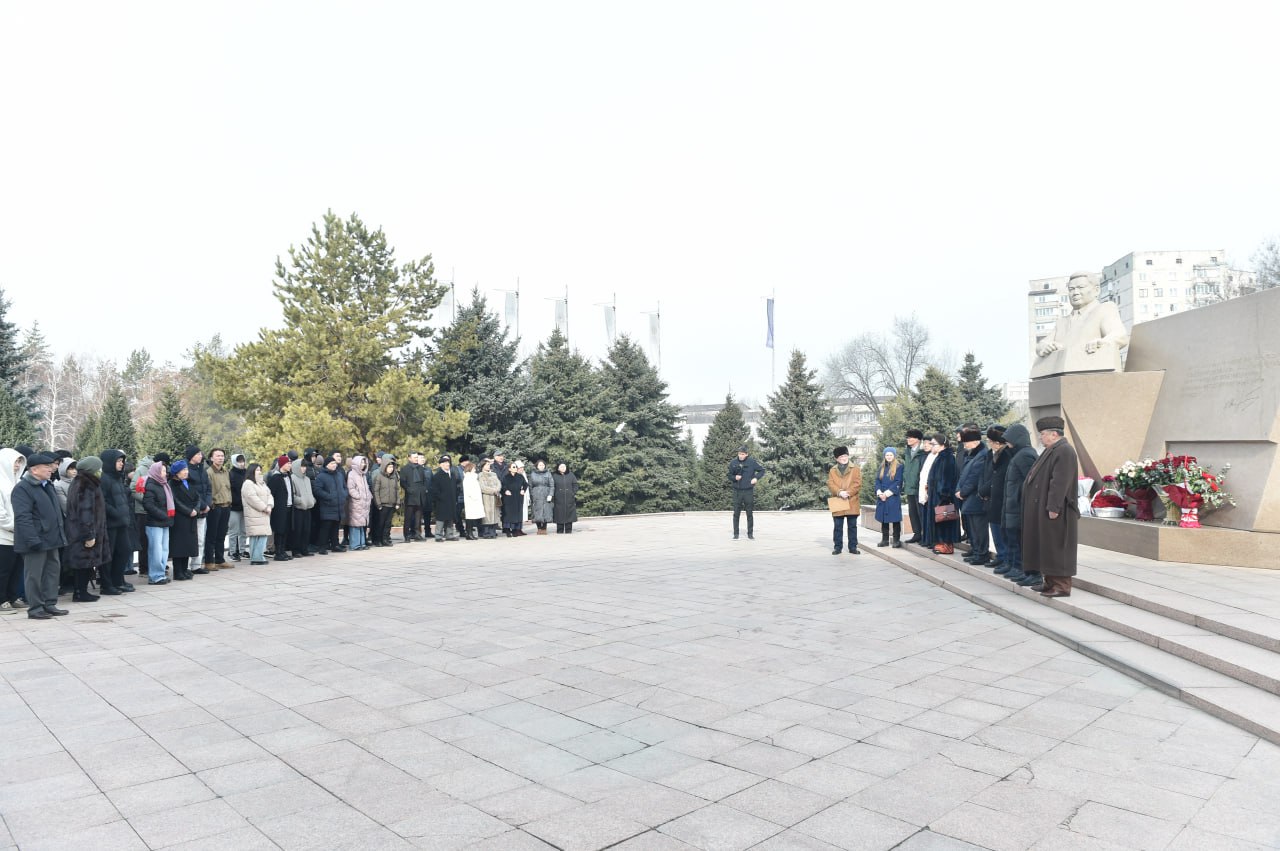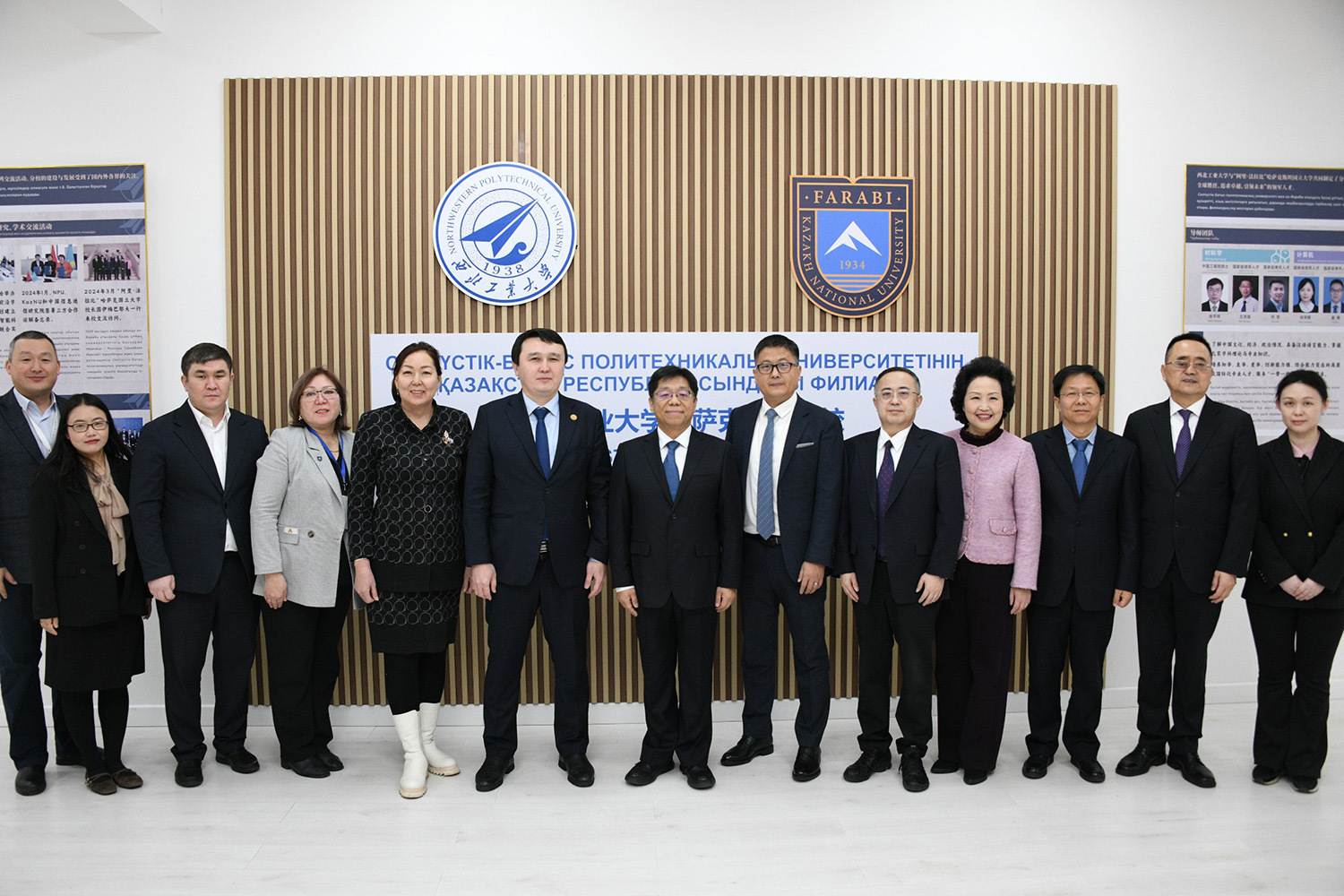International Scientific and Practical Conference at Al-Farabi Kazakh National University
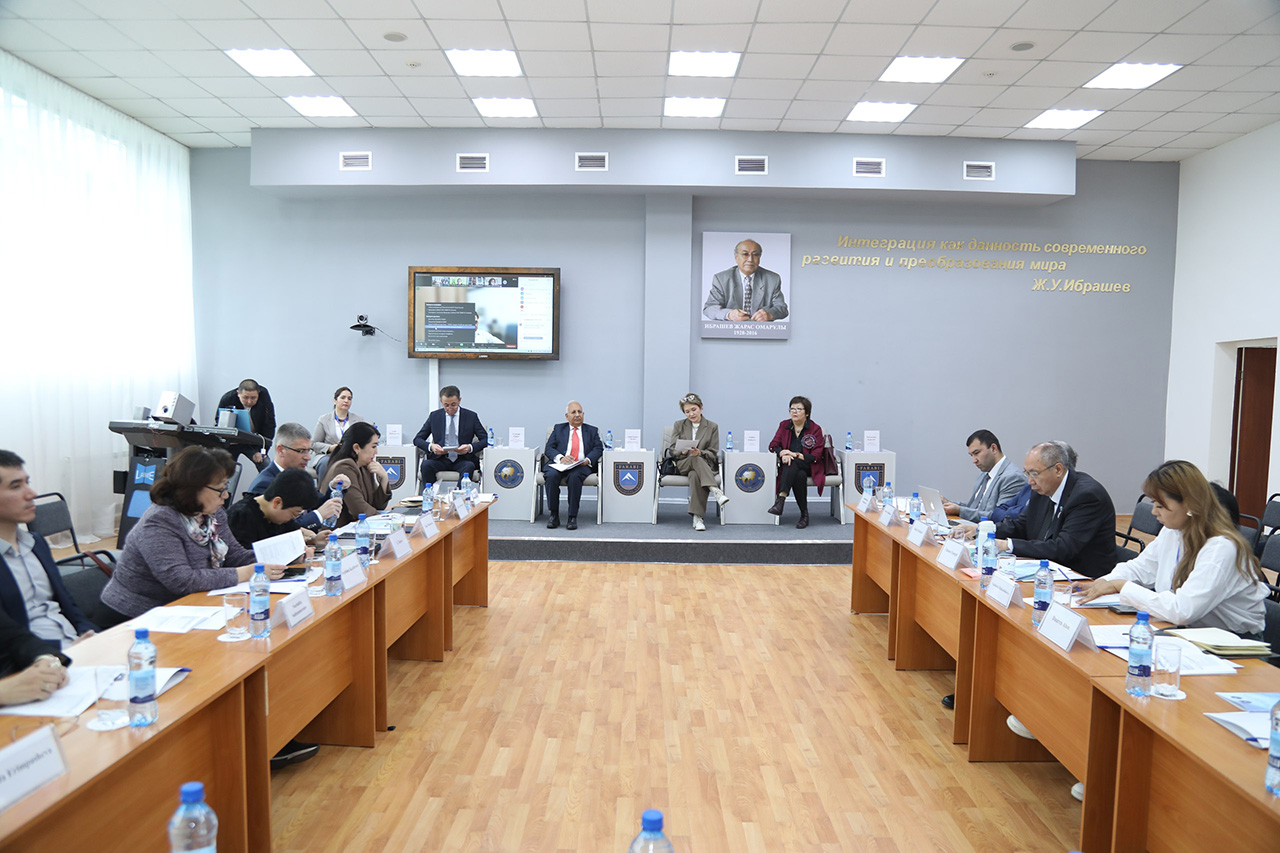
Almaty, April 9, 2024
The Institute for Security and Cooperation Issues at Al-Farabi Kazakh National University organized and successfully conducted the International Scientific and Practical Conference titled "International Experience of Integration and Its Potential for Central Asia" today, on April 9, 2024.
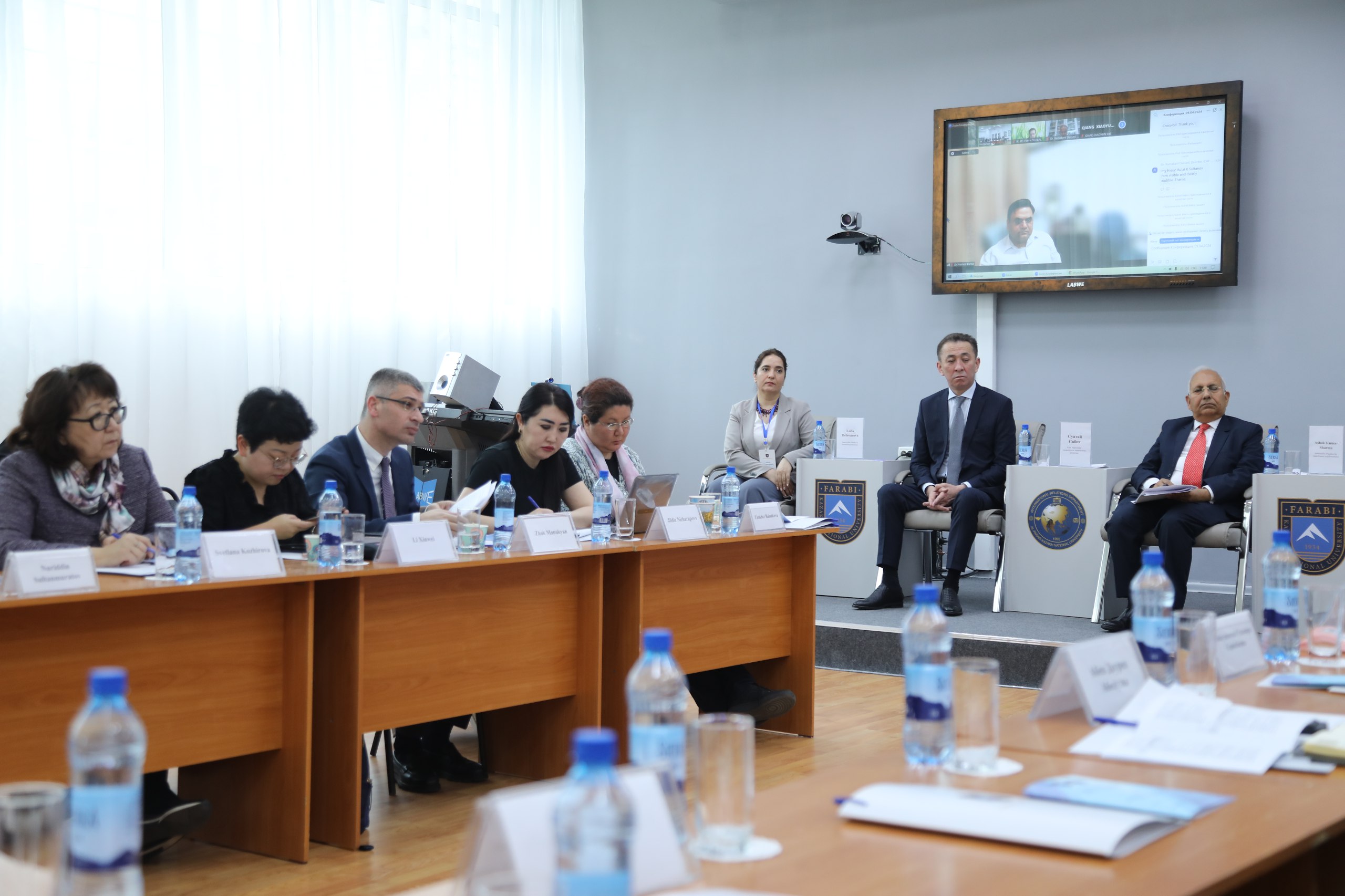
The plenary session of the conference was a captivating and significant event, featuring distinguished representatives of the administration of KazNU, including the Director of the Institute for Security and Cooperation Issues, Kuralay Irtysovna Baizakova, as well as the Ambassador, President of the India-Central Asia Foundation Ashok Kumar Sharma, Consul General of the People's Republic of China in Almaty Jia Wei, and Consul General of the Republic of Tajikistan in Almaty Ravshan Bobohonzoda Arabshakha.
Following the plenary session, the conference continued with two sections moderated by Professor Fatima Turarovna Kukeyeva, where interesting reports were presented by prominent specialists. The Director of the Research Institute for International and Regional Cooperation at the Kazakh-German University, B.K. Sultanov, delivered a report on the prospects of cooperation in Central Asia. The Director of the LEXFEIM Research Center at the University of Normandy, Pierre Chabal, presented a report titled "What does 'learning' from international experience mean?" The section also featured participation from the Chair of International Relations and Diplomacy at Yerevan State University Zh.S. Manukyan, the Chair of International Relations at Tajik State University A.N. Sharipov, the Director of the Afghanistan Research Center at Shaanxi Normal University Li Xingwei, Associate Professor of the American University in Central Asia Zh. Nisharapova, and Associate Professor of the Department of International Relations at the University of World Economy and Diplomacy G.M. Muminova. The presentations by the Regional Manager for Central Asia and Director of the NGO Peace Nexus Esengul Cholpon on "Geopolitical Aspects of Transport Connectivity in Central Asia" and the Director of the Center for Russia and Central Asia Studies at the Shanghai Academy of International Studies Cai Xiaoyun on "New Paths of Cooperation between Kazakhstan and China" sparked genuine interest. Historian, political scientist, and orientalist Sultan Akimbekov actively participated in the section's work.
Under the moderation of Professor Baizakova Kuralay Irtysovna, presentations were made by speakers specializing in economics, logistics, and water-energy cooperation. Outstanding reports from invited experts were heard. Notably, Director of the Institute of World Economy and International Relations Arupov A.A. presented a report titled "Strategy of Economic Interaction among Central Asian Countries," outlining key aspects of the economic cooperation strategy in the region.
The report "EU Cooperation Programs for Central Asia: New Challenges and Responses" was prepared jointly by Professor Muravska T. from the University of Riga and doctoral student Anderson L., who thoroughly analyzed EU cooperation programs for the region, discussing new challenges and response strategies.
Professor Kozhirova S.B. from the Astana International University presented a report titled "Economic Factors of China's Integration into Southeast Asia," focusing on research into the economic factors facilitating China's integration into Southeast Asia.
Aben D.A., Head of the International Security Department at KISI under the President of Kazakhstan, delivered his report titled "Regional Cooperation in the Water-Energy Sector," emphasizing the importance of regional cooperation in the water-energy sector.
Associate Professor Pramod Kumar from the Center for the Study of Russia and Central Asia at Jawaharlal Nehru University analyzed geopolitical aspects and priorities in the energy sector for India in his report titled "Geopolitics and Energy in the Central Asian Region: Priorities for India."
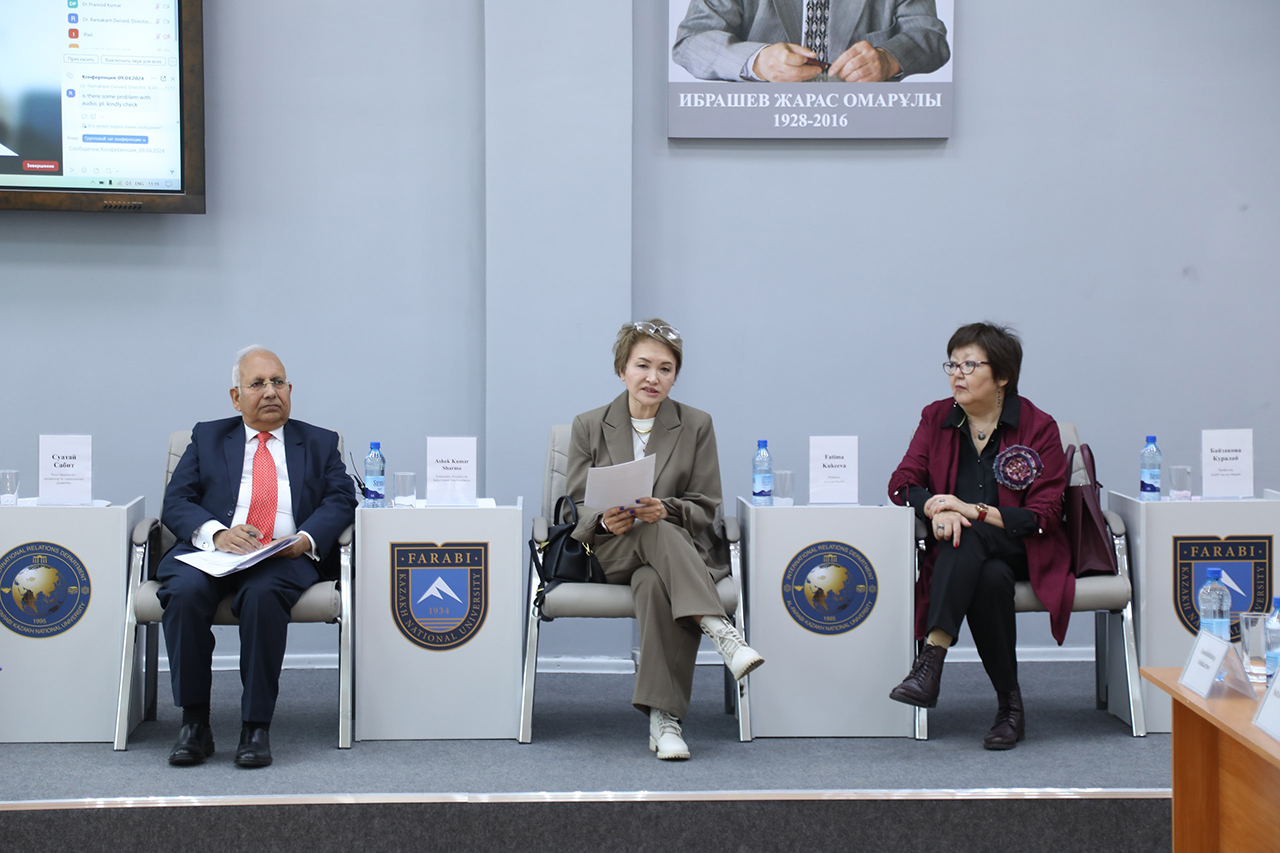
Another noteworthy report was presented by Professor-Researcher Abaidullaev M.M. from Turan University, titled "Prospects for Deepening Economic Cooperation between Central Asian Countries and the Russian Federation," offering insights into the prospects for economic cooperation between Central Asian countries and Russia.
The conference reports covered a wide range of topics, including economic cooperation, geopolitical aspects, integration processes, and regional studies. The presentations represent valuable research that will contribute to a deeper understanding and the development of cooperation strategies in the Central Asian region.

